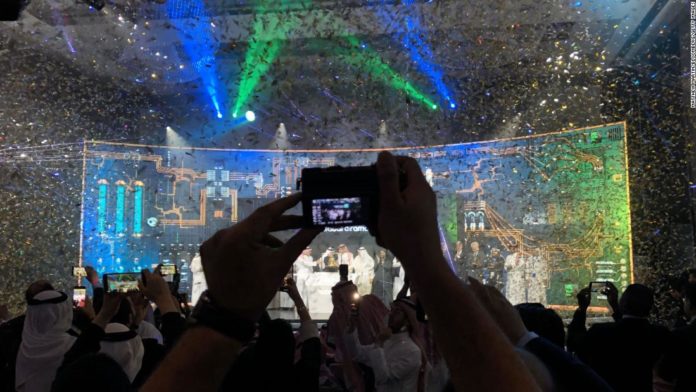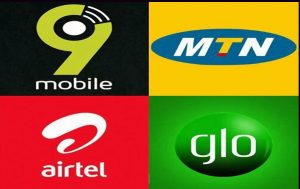The world has its first $2 trillion company. But for how long?

The stock gained 10% for a second consecutive day, reaching 38.70 riyals ($10.32) per share before giving up some of its gains.Saudi Aramco has gained roughly $300 billion in value since its shares debuted on the Riyadh stock exchange on Monday in the biggest initial public offering on record. It’s by far the most valuable company in the world, dwarfing runner up Apple, which is worth around $1.2 trillion.The vast majority of buyers for the stock are in Saudi Arabia. Samba Capital, which managed the IPO, said Tuesday that 97% of retail investors who received shares were from the country. And more than 75% of shares sold to institutional investors went to Saudi companies, funds and government institutions.The $2 trillion valuation was a priority for the crown prince ever since he first touted the partial privatization in 2016, but many analysts considered the figure a stretch despite Aramco’s monopoly on oil production in Saudi Arabia, the world’s largest exporter of crude.Analysts at Bernstein Research said Thursday that the $2 trillion valuation was “too much, too soon” given weak expected earnings growth and little upside for global oil prices. The company looks expensive, they said, compared to peers such as Exxon (XOM) and Royal Dutch Shell (RDSA). “Aramco should trade at a discount rather than premium to international oil majors,” the analysts said. More than 98% of the company is still owned by the kingdom, they noted, suggesting that investors should be concerned about corporate governance. Bernstein reckons the company is worth as little as $1.4 trillion.”Aramco could trade in a league of its own for some time, but the stock market is a weighing machine in the long term and the laws of economic gravity will eventually apply,” said the Bernstein analysts. They recommended that investors sell Aramco shares now.The long road to an IPOInternational skepticism over the valuation, combined with low oil prices, the climate crisis and geopolitical risk, forced Saudi Arabia to scale back its initial ambitions for the flotation. The IPO was supposed to usher in a new era of economic liberalization and foreign investment in Saudi Arabia. The Saudi government discussed floating 5% of the company in 2018 in a deal that would raise as much as $100 billion. It was looking at international markets such as New York or London, as well as Riyadh.But the deal was hampered by concerns about the valuation and potential legal complications in the United States. It was shelved after the murder of journalist Jamal Khashoggi in a Saudi consulate in Turkey sent a chill through business ties with the kingdom. Yet the listing was revived earlier this year, and Aramco moved ahead despite receiving muted interest from international investors. Aramco ultimately raised $25.6 billion by selling 1.5% of the company at a valuation of $1.7 trillion. Gianna Bern, an energy expert who teaches at the University of Notre Dame’s Mendoza College of Business, said the local offering was able to attract a “friendly audience” of Saudi nationals. International investors will watch how the company handles disclosure and regulatory requirements before considering whether to buy into a potential future international listing.”The real test will be a global offering, in another jurisdiction, such as London or Asia with more stringent regulatory requirements,” said Bern, who is also the founding principal of energy consultancy Brookshire Advisory and Research.







